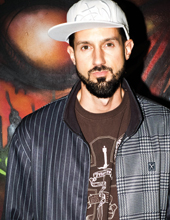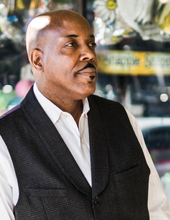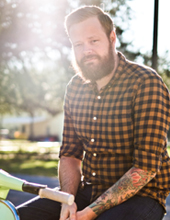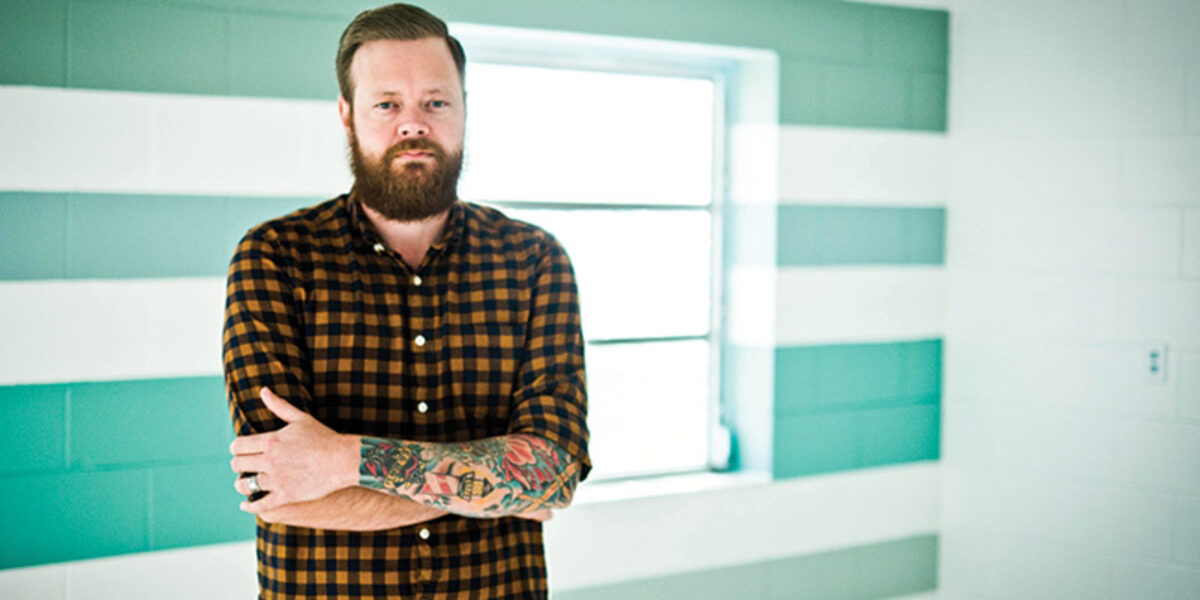
Tommy Kyllonen is pastor of Crossover Church, a beacon of hope in the middle of urban plight.
Tommy Kyllonen, pastor of Crossover Church, was a pastor’s
kid who knew the power of the Word in his life. As a teenager, though, Kyllonen
rebelled and preferred the streets instead of God. But his defiance and anger
didn’t deter the Lord from working in Kyllonen’s life. By age 18, this street
kid decided to go to Bible college and felt called to urban ministry—a calling
that helped place him exactly where he is today.

Michael Neely is shepherd of New Millennium Church, which welcomes a generation that has missed God.
Michael Neely, the shepherd of New Millennium Church, was
all set to succeed a beloved pastor in a prominent African American church. This
post is what he’d worked for and wanted, until the Lord spoke to him. “I had a
vision,” says Neely. “And in that vision, the Lord said to me, ‘I want you to
reach a generation that doesn’t come to church and doesn’t know me,’” Neely
says. “From that point on, I felt called to reach a whole generation of people
that had missed God.”

Tommy Phillips, pastor of Watermark Church, caters to what he calls a “subculture of artists, musicians and left-brained people,” much like himself.
Tommy Phillips, pastor of Watermark Church, was the son of a
minister. But he didn’t have the desire to go into pastoral care. He wanted to
be a musician and went to college for it. He didn’t like the music program,
however, and decided to study pastoral theology instead, thinking “he’d never
use it,” he says. God clearly has other plans.
All three pastors are unified by their desire to reach people
who don’t know God or don’t believe the Church is relevant to them. This group
is not the traditional Sunday set. They are tattoo artists, hip hop dancers and
performers, former strippers, single mothers, homosexuals—people who are
different and often feel judged by the Christian community for those
differences.
“Jesus hung out with the tax collectors and sinners,” Neely
says. “They were considered the scourge of society, yet they were always in his
presence. He met them where they were and loved them.”
In launching New Millennium, Neely knew he had to meet
people where they were, and it began with addressing something as fundamental
as clothing.
Having attended African American churches most of his life,
Neely was used to dressing in his Sunday best. But dress code was a barrier for
the people Neely wanted to reach.“Single moms said they couldn’t afford nice clothes, so they
didn’t come to church,” Neely says. “Young men were reluctant to enter church
wearing their athletic gear with their hats and caps. We knew we had to change
the dress code to embrace this generation. So we said, ‘Come as you are. You
won’t be judged for what you look like.’ So they come with their tattoos, their
piercings, their bling bling. And we’re happy to have them.”
Phillips doesn’t look like a traditional pastor. Sporting a
sleeve of tattoos, he attracts people just like himself in his own ministry. Watermark’s
“subculture of artists, musicians and
left-brained people,” Phillips says, is skeptical of traditional church
settings.
Although Watermark has a service on Sunday, the real church
thrives during the week. Nearly 60 percent to 70 percent of its 250 congregants
gather at house churches in Tampa. There, they pray, study the Bible, discuss
writings from prominent theologians and share their faith with each other. In
many ways, Watermark’s congregants are like the apostles of the early church.
Kyllonen’s church is similar to that of Phillips’. Crossover
recently moved into a former Toys “R” Us building in a rough part of Tampa.
Amid drugs, crime, poverty and homelessness, Crossover serves as a testament to
God’s hope in the middle of urban plight.
Kyllonen makes God’s Word culturally relevant using mediums
such as art, dance, film and music. “It doesn’t mean you compromise,” Kyllonen
says. “It means you help people understand biblical teaching in a way they can
relate to.”
Worship services are conducted within an urban context. A
live band and a DJ play R&B, reggae, salsa and hip hop. Break dancers move
to the music, as artists paint, and congregants watch film and video as the
Word is spoken.
But make no mistake: This is not about entertainment,
emphasizes Kyllonen. “The Word of God defines us, not hip hop. Every Sunday, we
delve into the Word and use it to instruct people on everything from sexuality
to sin to parental responsibility. We get real. We get raw. The teachings may
be hard to hear, but that’s what the Word says.”
Neely never stops marveling at the work God has
done in his own life and in those of the congregation he serves. Yet, he’s not
surprised. “We preach the Word. We preach it in a culturally relevant way. And
then we let the Holy Spirit do its job.”





